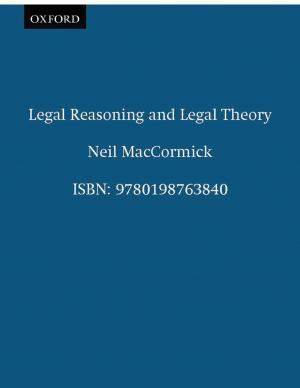Value Judgement
Improving Our Ethical Beliefs
Nonfiction, Religion & Spirituality, Philosophy, Ethics & Moral Philosophy, Reference & Language, Law| Author: | James Griffin | ISBN: | 9780191036941 |
| Publisher: | Clarendon Press | Publication: | January 22, 1998 |
| Imprint: | Clarendon Press | Language: | English |
| Author: | James Griffin |
| ISBN: | 9780191036941 |
| Publisher: | Clarendon Press |
| Publication: | January 22, 1998 |
| Imprint: | Clarendon Press |
| Language: | English |
James Griffin asks how, and how much, we can improve our ethical standards not lift our behaviour closer to our standards but refine the standards themselves. To give an answer to this question it is necessary to answer most of the questions of ethics. So Value Judgement includes discussion of what a good life is like, where the boundaries of the `natural world' come, how values relate to that world, how great human capacitiesthe ones important to ethicsare, and where moral norms come from. Throughout the book the question of what philosophy can contribute to ethics repeatedly arises. Philosophical traditions, such as most forms of utilitarianism and deontology and virtue ethics, are, Griffin contends, too ambitious. Ethics cannot be what philosophers in those traditions expect it to be because agents cannot be what their philosophies need them to be. This clear, compelling, and original account of ethics will be of interest to anyone concerned with thinking about values: not only philosophers but legal, political, and economic theorists as well. L
James Griffin asks how, and how much, we can improve our ethical standards not lift our behaviour closer to our standards but refine the standards themselves. To give an answer to this question it is necessary to answer most of the questions of ethics. So Value Judgement includes discussion of what a good life is like, where the boundaries of the `natural world' come, how values relate to that world, how great human capacitiesthe ones important to ethicsare, and where moral norms come from. Throughout the book the question of what philosophy can contribute to ethics repeatedly arises. Philosophical traditions, such as most forms of utilitarianism and deontology and virtue ethics, are, Griffin contends, too ambitious. Ethics cannot be what philosophers in those traditions expect it to be because agents cannot be what their philosophies need them to be. This clear, compelling, and original account of ethics will be of interest to anyone concerned with thinking about values: not only philosophers but legal, political, and economic theorists as well. L















